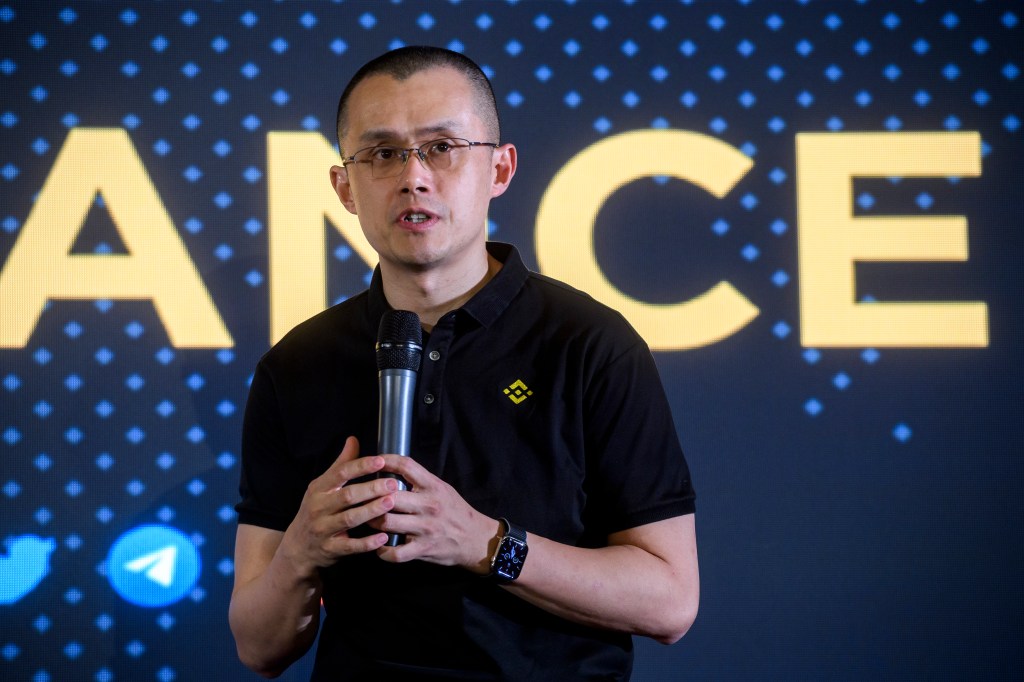Some top executives from Binance, the world’s largest cryptocurrency exchange, reportedly met US Treasury officials last month to discuss removing or reducing the scope of a government-appointed monitor of the exchange. The meeting came while Binance was also exploring a business arrangement with a Trump-family crypto venture, World Liberty Financial, the WSJ reported.
According to the WSJ‘s sources, Binance CEO Richard Teng and Chief Legal Officer Eleanor Hughes further requested the removal of its compliance monitorship or a reduction in its duration and scope. The government-appointed monitor has been overseeing the company’s compliance with anti-money-laundering (AML) laws since its 2023 guilty plea in a case revolving around AML violations.
In that case, Binance pleaded guilty to a criminal charge and paid fines totaling $4.3 billion to the DOJ and Commodity Futures Trading Commission, while its founder and CEO, Changpeng Zhao, agreed to step down and plead guilty to violating criminal AML requirements, serving four months in a US prison. It also agreed to exit the US market and report all suspicious transactions, as part of a plea deal with the Justice Department in November 2023.
As for the monitors: two independent ones were assigned by the Treasury and Justice departments to work on remediating the compliance program deficiencies last May. They were set to serve for five and three years, respectively.
A spokesperson for Binance said: “It is inspiring to see the incredible momentum behind the re-energized US crypto movement under the new administration and Congress. We are eager to support any government seeking to balance innovation with user protections in digital asset regulation.”
Zhao, Trump and crypto
Binance is also seeking a pardon for Zhao, WSJ previously reported. (To that end, last month, Zhao said on X that he had no business deals with World Liberty; he then added, “No felon would mind a pardon.”)
A White House spokesman told the WSJ it doesn’t disclose who is or isn’t under consideration for a pardon.
At an Abu Dhabi crypto conference last December, weeks before the inauguration, Zhao mingled with Trump’s son, Eric, and Trump allies including incoming Middle East envoy Steve Witkoff. In the “Whale Only” backroom, accessible to attendees who had paid $10,000 for a VIP pass, Witkoff told guests he would champion crypto in the new administration, the WSJ’s sources said.
And late last year, Trump family representatives held talks with Binance about taking a stake in Binance.US, Binance’s now-moribund US arm that operated separately from the larger exchange. The business talks over the Binance.US stake and any involvement of Liberty Financial’s USD1 stablecoin ramped up in the months that followed the conference, people familiar with the discussions told the news outlet.
The Trumps co-founded World Liberty with Witkoff and his sons several months earlier. And the interaction between World Liberty and Zhao started well before this meet-up; World Liberty hired one of Zhao’s close friends, Rich Teo, who petitioned the judge overseeing the Binance owner’s case for leniency, to help launch its stablecoin.
A Treasury official told the WSJ the Binance meeting was one of dozens of meetings the agency has been taking with the crypto industry. A World Liberty spokeswoman said the company’s goal is to make USD1 “accessible for millions globally.”
The partnership would be a boon to World Liberty; Binance’s market power could help turn it into a serious player, since Binance has more than 250 million users and processes some $65 billion in trades a day.
In just one of a series of gestures showcasing increasing regulatory and legal leniency over cryptocurrency businesses, DOJ said it was planning to limit its crypto-related investigations to focus on the use of digital assets in things like terrorism, drug trafficking and fraud.
And the SEC, often at the direction of then-acting Chair Mark Uyeda, has announced a change of course by the agency, hinting that the SEC will use notice-and-comment rulemaking and releases — rather than enforcement actions — for classifying crypto assets under the federal securities laws.
And the Federal Deposit Insurance Corp.(FDIC) issued new guidance saying that FDIC-supervised institutions can conduct crypto-related activities without prior FDIC approval, provided they adequately manage the associated risks.
Monitorships
The Justice Department has paused its corporate monitorship program and has disbanded the cryptocurrency unit that helped bring the 2023 case against Binance, announcing the latter move in a memo titled, Ending Regulation by Prosecution. So that meant one of the monitors was relieved of duty.
But the company still had one from the Treasury Department’s enforcement order, and it likely felt like a costly and burdensome part of the enforcement action. That’s why Binance’s Teng and Hughes requested that the agency remove the monitorship or reduce its duration and scope, people familiar with the March meeting said.
Binance’s spokesperson said the monitors led to “inefficient and costly burdens,” but added the assurance that “Binance is “in the process of fine-tuning its rules but without a loosening of controls.”
DOJ just allowed diversified natural resources company Glencore to end its compliance monitorship early, although it was going to end next month anyway, according to its FCPA settlement with US authorities back in May 2022.
But, according to press reports, DOJ also recently decided to keep in place the one assigned to TD Bank as part of the bank’s multi-billion-dollar settlement reached last fall. So the current viability of the corporate monitorship regime remains an open question in the Trump administration.

















